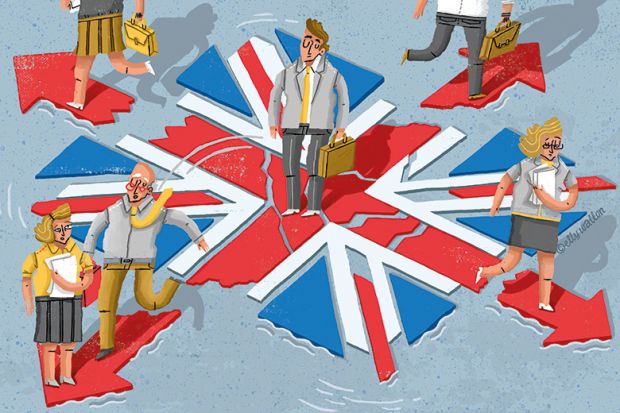It is surely good news that last week the UK’s High Court ruled that Parliament must have a say over the UK’s exit from the European Union. If nothing else, the debate will allow the many concerns about Brexit to receive a proper hearing before the irrevocable step is taken.
As a foreigner living in the UK, I have found the move to Brexit something of an eye-opener. Nearly three decades ago, I wrote a book that was deeply sceptical about the single market programme. Entitled European Markets After 1992, it argued that the programme was not about grand political aspirations but about the growing competitive weakness of Europe in new markets, such as IT and telecommunications. I predicted that the desire to reduce business costs would inevitably lead to competition within the EU for social services and people.
What I got wrong was the extraordinary extent to which the movement of people and goods would alter the human dynamic in Europe. On the plus side was the explosion in the number of people speaking English and, hence, being able to work across borders. On the minus side was the political fragmentation and tribalism that accompanied it, with those without such skills becoming marginalised and embittered.
One reason the UK is a sanctuary for migrants is simple: its language. I – an Australian-American – have worked in Denmark, France, Germany, Norway, the Netherlands, Finland and Austria. As an academic, I could easily have settled in any of them. However, my family did not speak the local languages, so for them, living in an anglophone country is a necessity. Then there is the access that the UK gives to the social and economic environment of Europe at large. For me, this entailed not just access to European research funds but also the ability to travel without endless queuing, to work at other institutions more freely, and to own property and get healthcare on the continent without being taxed at every turn. Because of the English language factor, the UK also provides a more heterogeneous work environment: the diversity provided by the 30 per cent of my colleagues from outside the UK is both refreshing and challenging.
In the post-Brexit reality, however, one must expect this to change, and to do so dramatically. Universities’ fears so far have concentrated on EU nationals returning to their home countries. But they should worry about the rest of their academic staff too. The fall of the pound is, by definition, a repricing of all things British. Not only is UK land, housing and production being viewed as less valuable, so too is UK-based labour. Anyone now working in the UK is in essence being told that their productivity – their economic value – is lower than what it was pre-referendum. This means UK-based labour with non-UK alternatives will need to be “marked” to market: in other words, their salaries must be increased. (For me, that would imply a post-Brexit premium of more than 20 per cent in Australian dollar terms, or 15 per cent in US dollar terms.) If this also occurs in other globalised industries, it will further widen the economic gap between those with the most valuable human capital and those at the bottom of the ladder – potentially exacerbating political and social divisions. But if it does not happen, people with international options will join the “Brexodus”.
The other aspect of all this that Brexiters do not understand is that most migrants do not show up at Calais, but at Heathrow, and do so by making a choice among alternatives. While the UK government talks about wanting the “right” type of immigrants (of whom, I suspect, I am one), they do not understand that there is both a supply and a demand for labour. Migrants like me have a choice and the fact that I am wanted does not entail that I will come, or stay. My group advertised three positions before the Brexit vote and got hundreds of applications from all around the world. We ultimately hired an Italian and Romanian, both with overseas PhDs. After losing two junior overseas colleagues, we advertised again after the referendum. We received dramatically fewer applications, and none of them were from the EU, North America or Oceania. We ended up rejecting them all.
If the social and political environment is hostile and the salary and benefits substandard, it is quite understandable that those possessing the skills the UK needs will simply choose the alternatives. This is all the more likely given the nature of modern economic activity, which is hugely dependent on the spillovers from “complementarities”, such as the people you work with and the capital attached to your labour. It is telling that all the UK’s Nobel prizewinners this year were at US universities and all the US winners (except for Bob Dylan) were immigrants. Skilled people go where there are other skilled people and the resources to do their jobs well. So the Brexodus will also include skilled locals, who know they too are better off working in an environment that provides them with opportunities rather than constraints.
Timothy Devinney is pro-dean for research and innovation and leadership chair in international business at Leeds University Business School.
后记
Print headline: Brexodus: the UK isn’t the only option for the world’s highly skilled




